Can you take eggs backpacking? You can take eggs backpacking. The trick is to make sure they’re handled properly so they don’t get smashed or cracked along the way. Here are some tips on how to pack them.
Can you take eggs backpacking? It’s a question that has plagued many an egg shopper. I think eggs are one of the most versatile foods you can buy, as they can be used for breakfast, lunch, and dinner, as well as being a main ingredient in cake making.
Eggs are yummy! But it seems that at every turn, a person faced with the possibility of taking eggs backpacking is met with conflicting information on whether this can indeed be done or not.
Well, after traveling to the ends of the earth to see if I could find an answer (the ends of my street),
And speaking to some extremely knowledgeable people (three separate bus drivers who didn’t know), I have been able to compile a short list of “dos” and “don’ts” for those looking to take their eggs backpacking.
These are based on mostly anecdotal evidence from people who have taken their eggs backpacking and encountered (or not encountered) problems.
Can you take eggs backpacking?
Yes, you can take eggs backpacking. But if you’re not careful, they can spoil quickly in the heat. Here’s how to keep your eggs fresh on the trail:
Choose a cooler that is large enough to hold all of your food and other items. Place your cooler inside another container, such as a backpack or duffel bag.
This will help keep the contents of your cooler from shifting around while you’re hiking or traveling by car or plane to your destination.
Wrap your eggs in an insulated plastic bag or paper towel before placing them in your cooler. This will help prevent condensation from forming inside the egg carton and potentially damaging the quality of the eggs.
Store other foods that generate more heat than eggs, such as meat products, at the bottom of your cooler so heat does not rise up into other items like fruits and vegetables.
Place dry ice in a separate sealed plastic bag underneath foods like meat products in order to keep them cold for longer periods of time without using up all of your ice supply too quickly.
Key takeaway points
- Use a backpacking egg container.
- Dehydrate your eggs before packing.
- Pack hard boiled eggs with you.
- You can also carry powdered eggs.
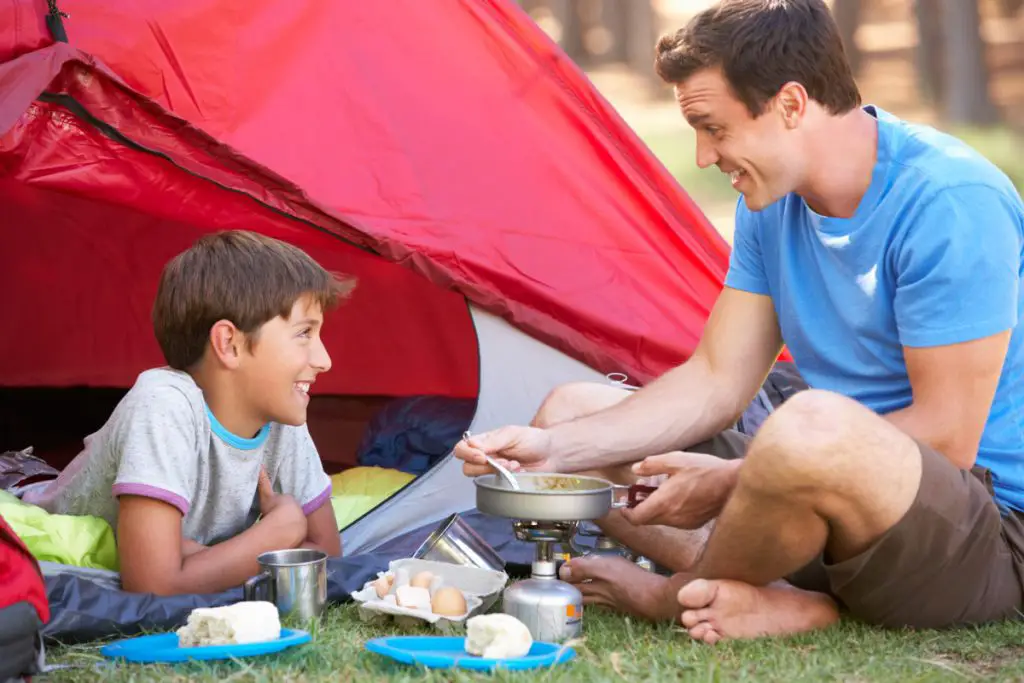
Use a backpacking egg container
If you are an outdoorsman or woman who enjoys hiking, backpacking, and camping, then you’ll want to take your eggs with you! Eggs can be cooked in so many different ways that it’s hard to know where to start.
However, if you’re looking for some variety in your egg-cooking routine while on the go, here are some tips:
Use a backpacking egg container. You can find them at any outdoor supply store, and they come in a variety of sizes and shapes—the perfect size for carrying all of your eggs wherever they need to go!
Use a backpacking egg container when hiking or camping out in the wilderness with friends or family members who love eating scrambled eggs at breakfast time.
After all, what better way is there than cooking up some fluffy scrambled eggs together over an open fire?
Use a backpacking egg container when hiking or camping out in the wilderness with friends or family members who love eating scrambled eggs at breakfast time. After all, what better way is there than cooking them up over an open fire?
If you’re looking for some variety in your egg-cooking routine while on the go, here are some tips: Use a backpacking egg container.
You can find them at any outdoor supply store, and they come in a variety of sizes and shapes—the perfect size for carrying all of your eggs wherever they need to go!
Use a backpacking egg container when hiking or camping out in the wilderness with friends or family members who love eating scrambled eggs at breakfast time.
After all, what better way is there than cooking up some fluffy scrambled eggs together over an open fire? If you’re looking for some variety in your egg-cooking routine while on the go, here are some tips:
Use a backpacking egg container. You can find them at any outdoor supply store, and they come in a variety of sizes and shapes—the perfect size for carrying all of your eggs wherever they need to go!
Use a backpacking egg container when hiking or camping out in the wilderness with friends or family members who love eating scrambled eggs at breakfast time. After all, what better way is there than cooking up some fluffy scrambled eggs together over an open fire?
Read more articles: How to Backpack with Eggs?

Dehydrate your eggs before packing
If you’re planning on taking eggs in your backpack, you should dehydrate them first. This process takes a couple of hours and can be done at home or in a food dehydrator.
If you don’t have access to either, here are some tips for baking your own dried eggs:
Place the raw eggs in a single layer on a baking sheet.
Bake them at 130 degrees Fahrenheit for two hours (or until they turn white). Don’t worry about the shells cracking—they’ll dry up just fine when cooking time is over!
For best results, use a food dehydrator to dry the eggs so that they’re easier to pack into your bag later on.
If you’re using natural eggs, you can also use this method to preserve them. But first, make sure that your raw eggs are fresh and clean (and not cracked).
If they are, place them in a single layer on a baking sheet and bake at 130 degrees Fahrenheit for two hours (or until they turn white).
Don’t worry about the shells cracking—they’ll dry up just fine when cooking time is over! For best results, use a food dehydrator to dry the eggs so that they’re easier to pack into your bag later on.
If you’re using natural eggs, you can also use this method to preserve them. But first, make sure that your raw eggs are fresh and clean (and not cracked).
If they are, place them in a single layer on a baking sheet and bake at 130 degrees Fahrenheit for two hours (or until they turn white).
Pack hard boiled eggs with you
Hard-boiled eggs are a great source of protein and can be a lifesaver when you are on the go. Because they are so fragile, properly packing them is key to preventing broken yolks and cracked shells.
There are several ways to pack hard-boiled eggs while backpacking: Use an egg container. Use a sealable freezer bag. This method is the easiest and most cost-effective way to pack your hard-boiled eggs while backpacking.
Simply place your eggs in a freezer bag with no air left inside, then seal it shut tightly until there are no gaps between the seams of the plastic, and you’re good to go!
Use an egg container. These containers come in various sizes and colors and can hold up to six hard-boiled eggs at once. Some even have dividers for separating different types of food (like cheese or crackers). Use a vacuum sealer.
This method will prevent any air from getting into the container, which can cause spoilage over time if it’s not tightly packed down with enough pressure applied by the vacuum sealer device itself.
But it does ensure that no bacteria will make their way into your food either! It also ensures that when opened later on down the road, there will be no leakage issues because everything inside is completely sealed off tight!
Read more articles: How to Pack Eggs for Backpacking?

You can also carry powdered eggs
This is a great option for those who want to pack light but also don’t want their food options limited. Powdered eggs are easy to carry, and they’re versatile. You can add them to other foods or even make them into meals on their own!
Powdered eggs can be used in a variety of recipes. For example, you can use them to make pancakes, quiche, or frittata. You can also add them to soups and stews for extra protein.
For those who want convenience, there are also single-serve packets available that can be added directly to water and consumed on the go!
Powdered eggs are also a great option for campers and backpackers, who often want to keep their food options light. You can make powdered eggs into pancakes or frittatas by adding other ingredients such as oil, water, and spices.
Powdered eggs are also a great option for those who want to save money on their food bill. Powdered eggs are often less expensive than fresh eggs, especially when you buy them in bulk.
In addition, powdered eggs can be used in many recipes where fresh eggs wouldn’t work well. For example, many baked goods require a lot of eggs.
If you’re trying to make a cake or homemade tortillas, it can be difficult if you only have fresh eggs available. Powdered eggs are also good for those who don’t have access to refrigeration or electricity.
Powdered eggs have many uses, including as a meat substitute for vegetarians and vegans. You can also use them in baking or other recipes that call for eggs.
For example, if you’re trying to make a cake from scratch but don’t want to go through the trouble of separating all those yolks from the whites, powdered eggs are an easy solution!
Read more articles: Taking Fresh Eggs Backpacking
FAQ
1. How do you transport eggs when hiking?
Fill a Nalgene container with a wide opening, like this one, carefully with eggs and dried rice until it is full. It will evenly distribute pressure around the egg and protect it from any impacts.
2. Can you take eggs on a camping trip?
Therefore, keep eggs in mind to carry in your cooler while making plans for your next camping trip. Eggs are not only a tasty snack, but they can also help keep your food cold, ignite fires, and provide you with a fun activity to do with your kids.
3. Can you bring raw eggs in the backcountry?
On a hike, you can simply throw them inside your food bag or bear box without having to worry about them squashing or shattering. The two best storage options are lock-top rigid plastic containers or flexible zip-lock bags.
4. How do you store eggs on a camping trip?
Your eggs will need to be kept in an airtight container before being put in a cooler. After that, you should either surround the container with ice cubes or freezer packs. The cooler will maintain the appropriate temperature if left in the shade and opened seldom.
End of the line
We hope that this article helped you decide whether or not eggs are the right food for your next backpacking trip. In conclusion, eggs are a great source of protein and can be used in many different ways.
It’s important to know how long they last so that they don’t go bad while on your journey through nature.
Generally speaking, you can take eggs in your backpack while backpacking. There are a few caveats: First, only take two eggs at the most, as they will be easily broken if they are knocked around.
Second, make sure to put the plastic container that they come in on top of everything in your bag, and make sure nothing will puncture the plastic with pointy objects or sharp corners.
Third, double-check that the eggs will remain intact throughout your adventure.I once traveled through Scotland with my boyfriend, who has been known to pack just about anything into his backpack.
He thought we were being ridiculous when I told him that he couldn’t take eggs backpacking. However, after putting them in his bag, something must have shifted because it broke at a very inopportune time!
Read more articles: Backpacking with Eggs

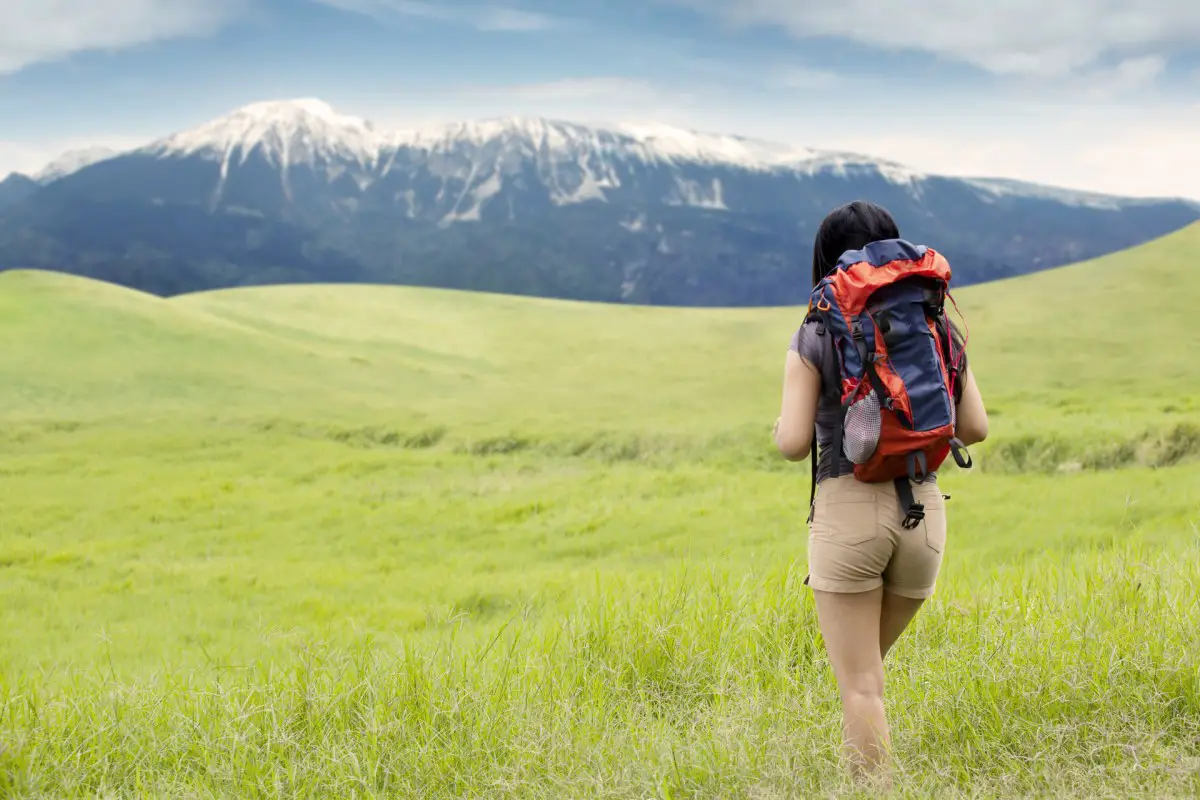

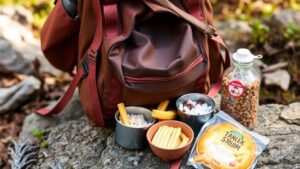




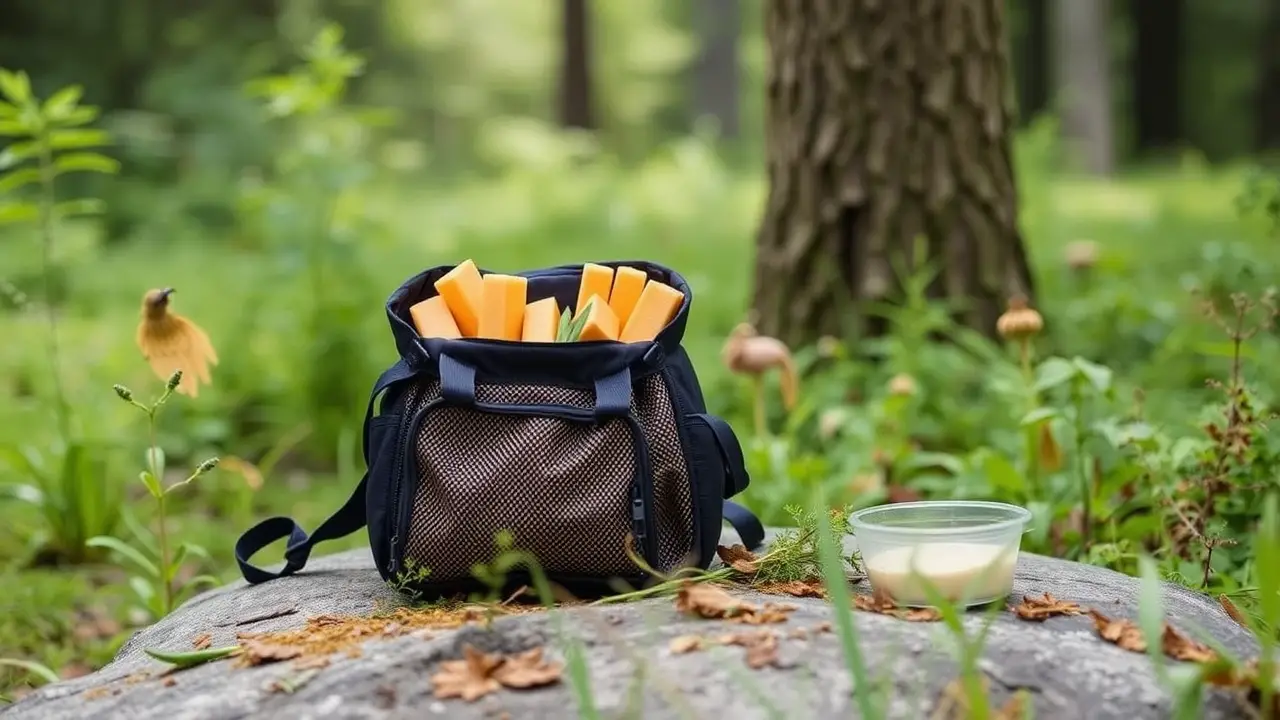
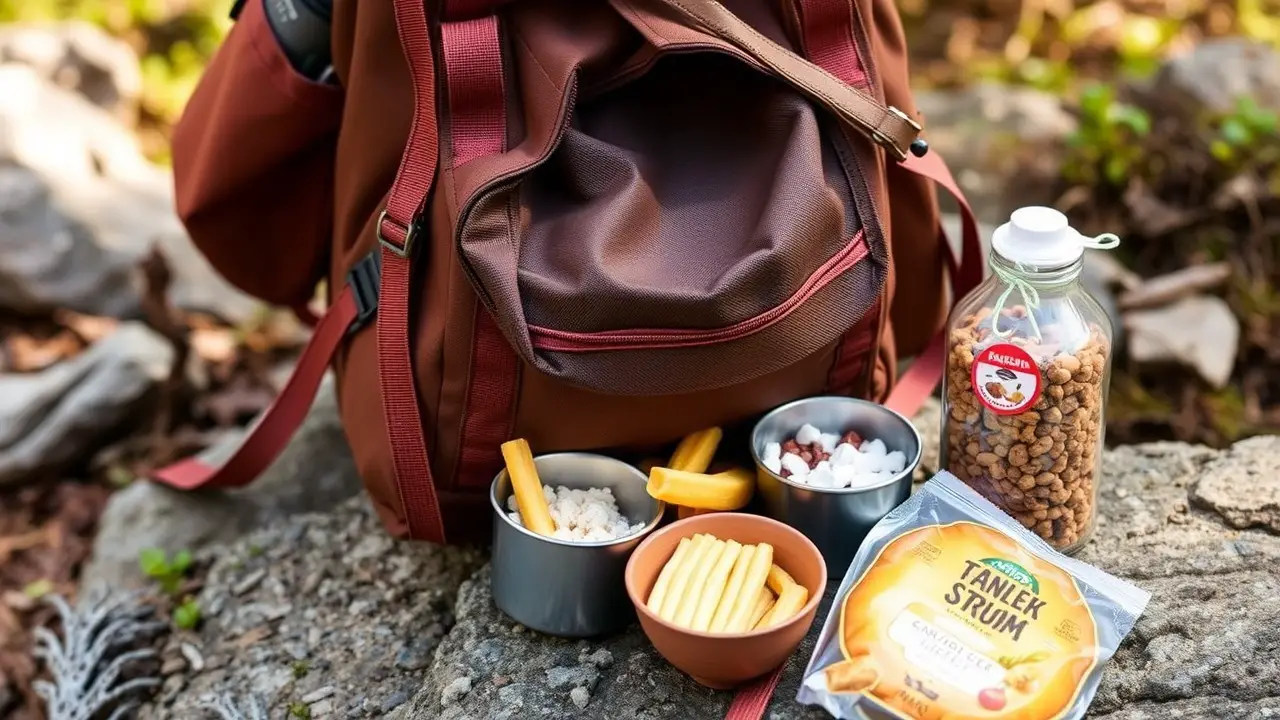
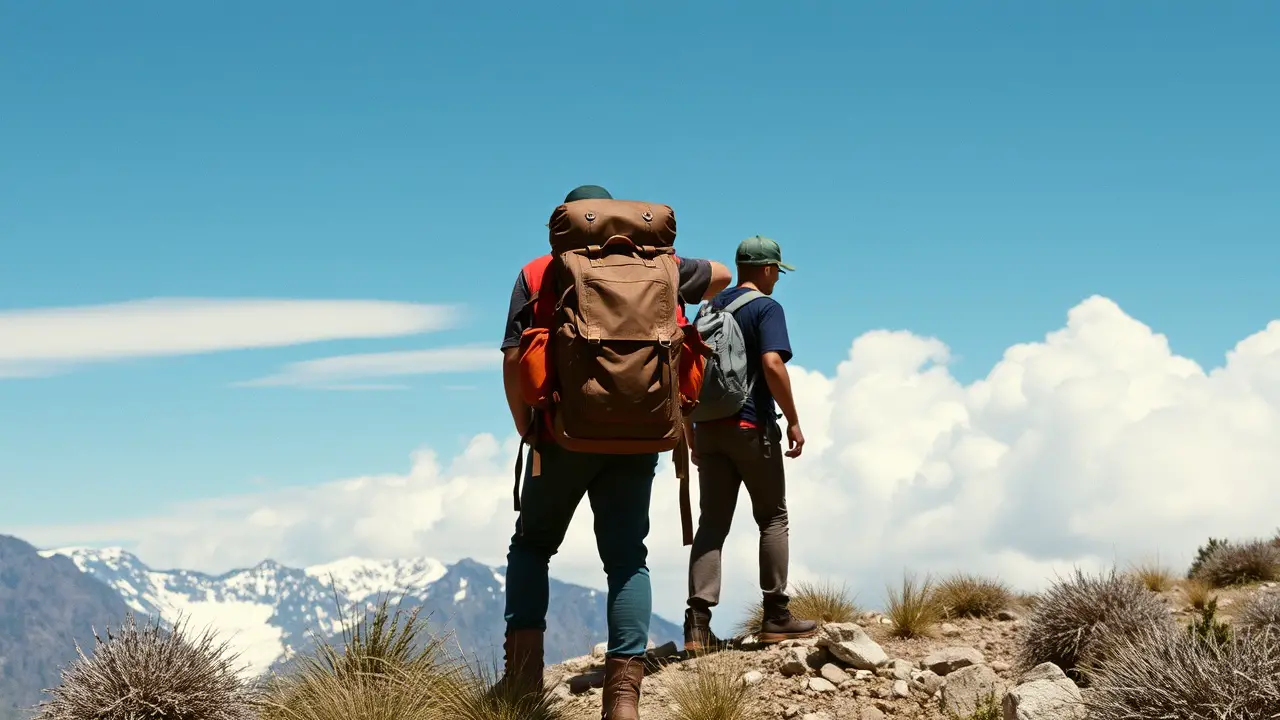
Leave a Reply